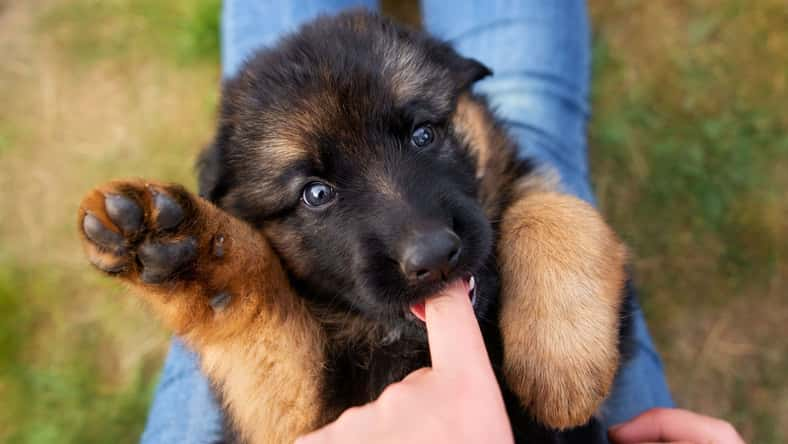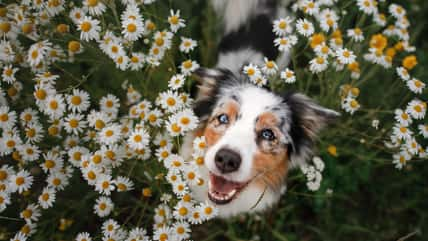Put A Stop To Your Puppy Nipping And Biting With These Helpful Tips

Bringing home a new puppy isn’t all sunshine and rainbows. Amidst the cute cuddles and tail wags, there is a less-than-adorable habit that every single puppy parent will eventually encounter – nipping and biting.
Your dog’s tiny teeth might be small, but they can pack a surprising pinch. While it’s only natural to feel both frustrated and concerned when your puppy starts nipping at everything in sight, understanding this behavior is crucial for addressing it.
This is a common phase in a puppy’s development, and with some patience and effective strategies, you can get your furry friend to grow out of this habit.
First, Why Do Puppies Nip?
Puppies rely on their mouths to explore the world around them. Just like human babies, dogs use their mouths to test boundaries and learn more about their environment.
Nipping is a way for them to communicate, play, and even relieve the discomfort that comes with teething. Puppies would typically nip at their littermates during playtime, too, which helps them develop social skills and learn bite inhibition – or the ability to control the force of their bite.
So, when your puppy nips at you, they’re not trying to be aggressive. They’re just looking to play and learn more about their surroundings.
How Long Does The Nipping Phase Last?
This phase usually peaks between three to six months of age, which coincides with the teething period. During this time, those little teeth are falling out, and the discomfort can lead to more frequent nipping.

otsphoto – stock.adobe.com – illustrative purposes only, not the actual dog or person
The good news? With some consistent training and positive reinforcement, most pups will significantly reduce their nipping by the time they are six to eight months old.
Just remember that every single dog is different, so some may take longer than others to outgrow it.
How To Put A Stop To Puppy Nipping
First and foremost, when your puppy starts to nip, you should immediately redirect their attention to a toy. You can keep a variety of chew toys on hand for this purpose, especially those specifically designed for teething dogs.
You should encourage your pup to chew on those instead of your fingers or clothes. Also, be sure to praise them a lot when they choose a toy over your skin.
Next, if your puppy nips too hard during playtime, you can let out a high-pitched “ouch” to teach bite inhibition. This mimics the sound a littermate would make – startling your puppy and letting them know that they’ve gone too far.
Afterward, it’s best to stop play for a short amount of time as well in order to reinforce that nipping means the fun ends. Over time, your puppy will learn to be gentler.
Now, if your puppy is particularly persistent, you can try using a brief time-out. Calmly remove yourself from the situation or place your dog in a quiet, safe area for a minute or two whenever nipping gets out of hand.
This will teach them that nipping ultimately leads to a loss of attention (and playtime).
Socialization is critical for puppies, too. Scheduling regular playdates with other well-behaved dogs can help your pup learn proper play behavior. They’ll even discover that overly rough play isn’t tolerated by their peers.
Finally, the importance of rewarding good behavior cannot be overstated. Whenever your pup is calm and playing nicely, give them some positive reinforcement. This is extremely powerful, and staying consistent will help them learn what behaviors are acceptable – and even treat-worthy
How Not To React To Nipping
With all of that being said, one of the most common reactions to nipping is punishment or screaming. Don’t do this! Yelling, scolding, or using physical reactions can confuse and scare your dog.
This may lead to fear-based aggression or a breakdown in the trust between you and your pet.
Additionally, you can try to avoid playing rough games such as tug-of-war or wrestling – which only encourage more biting and nipping. Rather, you can stick to games that promote gentler interactions, like fetch.
Sign up for Chip Chick’s newsletter and get stories like this delivered to your inbox.
More About:Animals





